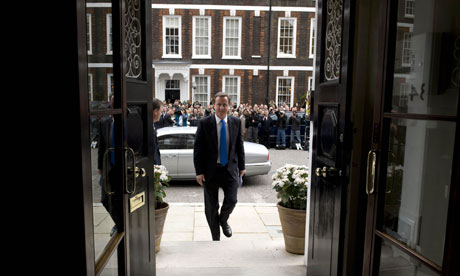The Washington Post's editorial page sounds a worried note after a conservative Republican lost his primary bid for not being quite conservative enough (i.e. he had voted for TARP and had co-sponsored a relatively moderate health care reform proposal with a Democrat) and a Democrat from West Virginia who had shown a willingness to compromise on greenhouse gas regulation lost as well. In short, two fairly well respected Members who were willing to work with others on compromises lost to candidates who made it clear that compromise was not in their vocabulary:
For many party cleansers, working across party lines constitutes treason. We agree that elected officials ought to be guided by principles that they are willing to fight for. But we also see a difference between fidelity to principle and dogmatism. If Republicans cannot accept that Democrats may make some reasonable arguments, and vice versa, then nothing will get doneI normally don't blog on electoral politics, but this trend has obvious implications for governance if Members of Congress believe that the only way to keep their seats is to scream across the aisle rather than actually governing. In future posts, I hope to look at what institutional reforms can be made to keep parties from becoming hostages to their most extreme elements.
Because, right now, the inmates are running the asylum in both parties.



